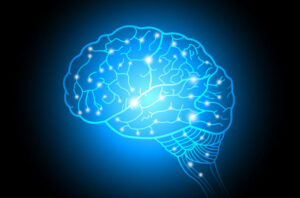World Brain Day is on July 22. By Our Student Pharmacist, Torie VonSeggern.

World Brain Day is celebrated every year on July 22 to raise awareness of the importance of both mental and neurological brain health.
This event is hosted by the World Federation of Neurology (WFN). Each year focuses on a specific topic, such as: Epilepsy, Stroke, Migraines, Parkinson’s disease, Multiple Sclerosis, and many others.
This year the focus is on “Brain Health for All”!
What does “Brain Health for All” mean?
“Brain Health for All” can mean something different to everyone, but the WFN states that the focus this year is on the five following messages:
Keys to a Healthy Brain:
There are five key parts that impact brain health. These include:
- Exercise (physical and mental)
- Sleep
- Environment
- Diet
- Access to Care
How does this Impact Brain Health?
Exercise (physical and mental)
- Slows age-related decline and maintains brain function
- Lowers blood pressure
- Decreases risk of stroke
- Maintains healthy blood supply to brain
Sleep
- Maintains function of the brain
- Improves immune system
- Allows time for brain to optimize memory
- Allows body to process and dispose of waste
Environment
- Long term exposure to large amounts of toxins in environment can lead to brain/nervous system problems.
- Examples of toxins: metals such as lead, aluminum, copper, arsenic, and cadmium
- Repetitive or major head trauma from accidents or sports can also lead brain cell damage.
Diet
- Processed foods, salt, and refined sugars can promote inflammation and vascular disease. This can lead to tissue damage to the body and brain.
Access to Care
- Ability to catch problems early
- Proper treatment
- Prevention of other health problems
Although there are uncontrollable barriers to improving brain health such as environmental (clean air, water, and nutrition) and access to care (lack of resources, cost of care, global pandemics), there are many things that can help brain health that can be incorporated into everyday life.
Ways to Celebrate World Brain Day
Here are some ideas on ways to celebrate World Brain Day and ways to continue to incorporate healthy brain activities on a regular basis.
Physical exercise:
There are many ways to exercise such as playing sports, going to exercise classes, or going to the gym. Walking is a great way to increase your physical activity every day.
Some examples to incorporate walking include:
- walking instead of driving if possible.
- taking the stairs instead of elevators.
- parking farther away and walking.
- going on after dinner family walks.
Another way to increase activity includes yard or house work such as cleaning and repairing.
Some additional ways to increase activity include using free exercise videos and dancing at home or exploring new physical activities.
Mental exercise:
There are many ways to exercise your brain such as completing puzzles, playing cards, crosswords, chess, and Sudoku.
Learning and teaching new skills/hobbies are also a great way to exercise the mind.
Some other ideas include meditating and learning new languages.
Keeping your brain active is important for maintaining health.
Sleep:
Sleeping is very important for the body and the brain. Although the amount of sleep needed varies, it is recommended to sleep at least seven to nine hours every night. Sleep allows the brain and the body time to recover from the stress and activity from everyday life.
Diet:
Although cost can be a barrier to a healthy diet, there are a variety of ways to incorporate the necessary factors of a well-balanced diet. A balanced diet consists of fruit, vegetables, protein, and whole grains.
Meat, which provides protein, is often expensive; another way to incorporate protein includes dried beans, peas, and lentils.
Fruits and vegetables vary in price. Some ways to reduce cost include buying fresh fruits and vegetables that are in season. Although pre-cut produce is convenient, this may also increase the cost.
Canned and frozen options may vary in cost, but allow for a longer shelf life; when looking at these options try no salt and no sugar added options.
Other alternatives include buying bagged produce such as apples and potatoes instead of individually packaged items.
Take some time today to care for yourself. Keep your brain sharp by exercising your mind and body, getting some extra sleep, and maybe trying some new recipes!
For more fun and free brain puzzles: https://krazydad.com/
Additional budget friendly resources from The Academy of Nutrition and Dietetics: https://www.eatright.org/food/planning-and-prep/eat-right-on-a-budget
References:




